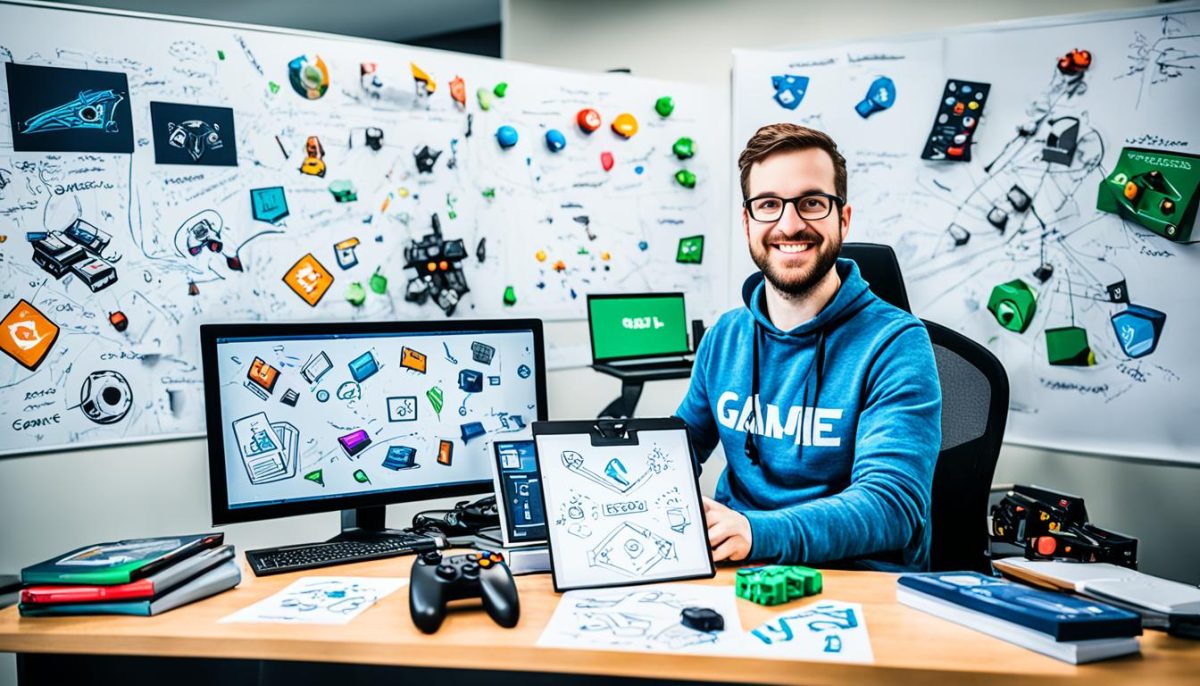Welcome to the exciting world of game development! If you’ve ever dreamed of creating your own virtual worlds, captivating storylines, and immersive gameplay, then embarking on a career as a game developer might be the perfect path for you. In this section, we will guide you through the essential steps and skills required to become a game developer, providing valuable insights into education options, necessary skills, and exciting career opportunities.
Being a game developer is not only about having a passion for gaming but also possessing the right combination of technical skills, creativity, and perseverance. Whether you aspire to develop console games, mobile games, or virtual reality experiences, this guide will equip you with the knowledge and resources needed to kickstart your journey in the gaming industry.
We will explore the importance of developing the right skills, including programming languages, game design principles, and the benefits of pursuing a computer science degree. Additionally, we will delve into building a strong game development portfolio, engaging in internships and game jams, and the power of networking within the industry.
With the rapid growth of the gaming industry, now is the perfect time to transform your passion for gaming into a rewarding and fulfilling career as a game developer. Whether you dream of working at renowned game studios or starting your own indie game development company, we are here to guide you every step of the way.
So, buckle up and get ready to dive into the exciting world of game development, where creativity and technology collide to bring unforgettable gaming experiences to life. Let’s embark on this thrilling journey together!
Developing the Right Skills
When it comes to pursuing a career in game development, having the right set of skills is crucial. Game developers need a combination of technological expertise and a creative mindset. In this section, we will explore the essential skills required to thrive in the dynamic and ever-evolving world of game development.
1. Programming Languages
To bring your game ideas to life, it’s important to have a strong foundation in programming languages. Familiarize yourself with popular languages such as C++, Java, or Python as they are widely used in the game development industry. These languages allow you to write efficient and performant code that powers the interactive experiences players love.
2. Game Design Fundamentals
Alongside programming, understanding the principles of game design is essential. Dive into the world of player psychology, level design, and storytelling. Familiarize yourself with industry-standard game engines such as Unity or Unreal Engine, which provide robust tools for designing immersive and visually stunning games.
“Game design is a delicate balance between art, technology, and storytelling—where creativity knows no bounds.”
3. Pursuing a Computer Science Degree
While not mandatory, earning a computer science degree or a related field can greatly enhance your game development skills. These programs provide a deep understanding of computational theory, algorithms, data structures, and software engineering principles. Additionally, obtaining a degree can open doors to opportunities for internships, research projects, and networking within the game development industry.
Combining these skills will equip you with a strong foundation to tackle the challenges of game development. Remember, it’s not just about mastering the technical aspects but also having the creativity to craft unique and engaging experiences for players.

| Skills | Description |
|---|---|
| Programming Languages | Mastering languages like C++, Java, or Python to write efficient and performant code. |
| Game Design Fundamentals | Understanding the principles of game design, player psychology, and using game engines like Unity or Unreal Engine. |
| Computer Science Degree | Earning a degree in computer science or related fields to deepen your understanding of computational theory and gain access to industry opportunities. |
Building a Game Developer Resume
When it comes to pursuing a career in game development, having a strong resume can make all the difference. In this section, we will explore the key components that can help you build an impressive game developer resume.
One of the most important aspects of your resume is a diverse game development portfolio. Showcasing your previous projects and demonstrating your skills through tangible examples can make a lasting impression on potential employers. Include a variety of projects that highlight different aspects of your expertise, from game design to programming and graphics.
Participating in internships and engaging in game jams can also greatly enhance your resume. Internships provide valuable hands-on experience and allow you to learn from industry professionals. Game jams, on the other hand, are intensive sessions where developers create a game within a short timeframe. These experiences showcase your ability to work under pressure and collaborate effectively with a team.
Lastly, networking within the game development industry is crucial for expanding your career opportunities. Attend industry events, join online forums, and connect with professionals in the field. Building relationships with other developers, recruiters, and potential employers can open doors to internships, job opportunities, and mentorship.

